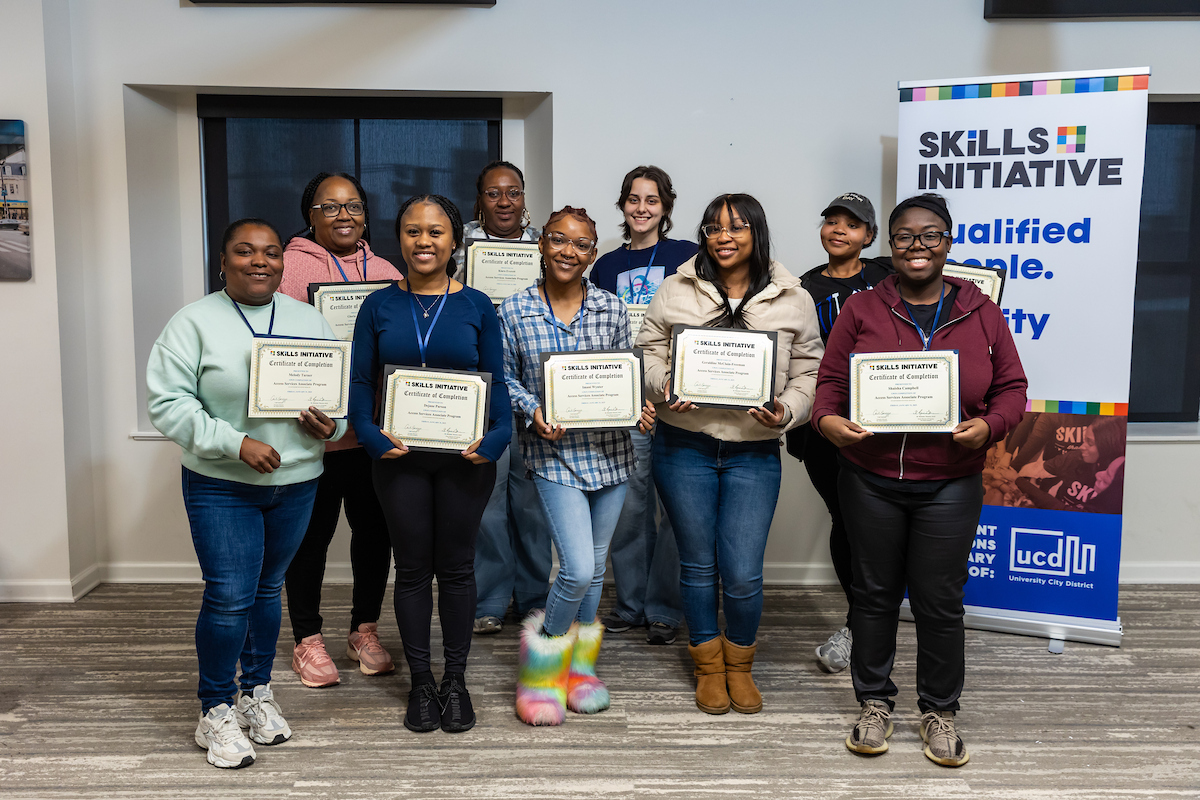The Keystone LifeSci Collaborative is considered the first regional sector partnership of its kind, according to organizers.
Words by: Sarah Huffman • Edited by: Danya Henninger
The Keystone LifeSci Collaborative launched last week as the first regional sector partnership of its kind, according to Cait Garozzo, executive director of the West Philadelphia Skills Initiative (WPSI), the workforce development program chosen to lead the project.
“Our charge is to create a coordinated workforce system across Southeastern Pennsylvania,” Garozzo told Technical.ly. “That will help to support, expand and create more equity in the life sciences workforce development system.”
A handful of other organizations have been convening life sciences leaders, she acknowledged — including Life Sciences PA, the Chamber of Commerce of Greater Philadelphia and the Wistar Institute — but most are now working with WPSI to make the collab a central place for questions or concerns from anyone in the ecosystem.
“We are centering industry so we can create collaborative, comprehensive, systems level responses to the issues that we’re hearing,” Garozzo said.
Philadelphia is considered the sixth best life sciences market in the country, according to a 2023 ranking from real estate services firm CBRE. The industry has seen a lot of local growth over the last 10 years, especially in cell and gene therapy. The region is recognized for being home to both the first FDA approved CAR T-cell therapy (Kymriah) and the first FDA-approved gene therapy (Luxturna).
Funding for the Keystone collaboration comes from the American Rescue Plan’s Good Jobs Challenge, which distributed money to 32 regions around the US.
Philadelphia Works was designated to receive the $22.7 million grant for this region, which it then distributed to three organizations focused on three separate industries. The Philadelphia Energy Authority was chosen for clean energy training, the Philadelphia Area Labor Management Committee for infrastructure training and WPSI for healthcare and life sciences training.
The Keystone LifeSci Collaborative reaches across Philadelphia, Montgomery, Bucks, Delaware, Chester, and Berks counties, and includes 22 industry leaders and over 50 public sector leaders.
It’s welcoming more members to join — interested parties can reach out to hello@keystonelifesci.org.
From marketing the region to developing the pipeline
Life sciences company Integral Molecular is an industry partner involved in the collaborative. The company is specifically interested in advancing workforce development in the industry, cofounder and VP of Sales and Customer Relations Sharon Willis told Technical.ly.
“We need workers and we need to attract and train but we also need to maintain that workforce,” Willis said, “which means addressing other issues that come along with employment.”
The idea of bringing everyone together to identify top priorities and come up with solutions is exciting to Willis, as is the opportunity to share resources and ideas.
Overall, the collaborative is based on the “Next Gen Sector Partnership” model, which asks industry leaders to outline their concerns first, before public sector partners come in with solutions. Operating with this model creates stronger partnerships and more long lasting solutions because the public sector is actually listening to what industry leaders need, said Garozzo, of WPSI.
At the first of its quarterly meetings last week, the collaborative identified five challenges and members split into “action teams” to work on each issue. They are:
- Business to business connectivity
- Marketing the region
- Developing the talent pipeline
- Building talent infrastructure
- Affecting policy
